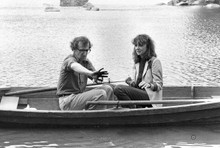 Loading... Please wait...
Loading... Please wait...New Products
Our Newsletter
Product Description
Manhattan (1979)
Find Similar Products by Tag
central park manhattan new york city comedy drama love triangle man wears eyeglasses romance teenage girl
Currency Converter
Choose a currency below to display product prices in the selected currency.

















